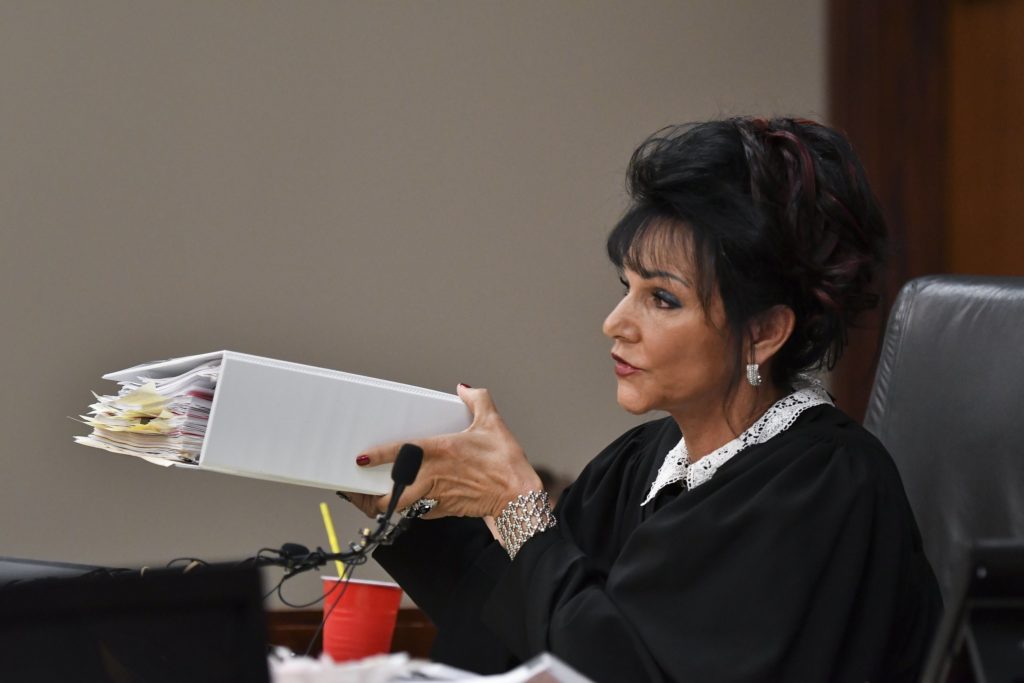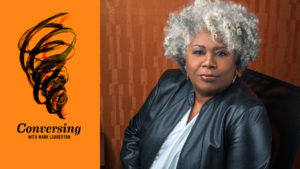In a legal system that often puts the abused on trial, rather than abusers, the judge in the Nassar case blazed a new trail.
“I just signed your death warrant.”
With those stark words, Judge Rosemarie Aquilina pronounced sentencing on Dr. Larry Nassar, a convicted serial sexual abuser; though convicted on a handful of abuse and child pornography charges, 156 young women, many of whom were elite athletes, testified to his criminal actions at his sentencing hearing. While much has been written about the crimes and abuse of Dr. Nassar, Judge Aquilina stands out not only for her deft handling of this emotionally charged courtroom, but for her support and validation of the victims.
Not only did Judge Aquilina provide the space for victims whose cases were not before the court to confront their abuser, she provided words of encouragement, support and most importantly, rebuked Dr. Nassar’s petty attempts to keep from having to listen to the testimony of those he had sexually abused. Judge Aquilina did what Michigan State University officials, USA Gymnastics and the Karoyli ranch officials did not: Immediately believed the women who had been abused, validated their lives and ended their perpetrator’s access to them and other victims.
Judge Aquilina did what Michigan State University officials, USA Gymnastics and the Karoyli ranch officials did not: Immediately believed the women who had been abused, validated their lives and ended their perpetrator’s access to them and other victims.
Judge Aquilina is the advocate these women needed against a harsh legal system that repeatedly puts the abused on trial, rather than abusers.
Consider that in the last few years, judges in various cases across the continent have been harsher to the victims rather than the perpetrators: Canadian federal court Judge Robin Camp asked a woman in a rape case “why couldn’t she just keep her knees together,” for instance; Montana Judge G. Todd Baugh was censured for blaming a teen for her rape and sentencing her rapist to jail for only 30 days; and even Judge Roy Moore, accused during his Senate race of sexual misconduct, as a judge often sided with persons accused of sexual crimes.
What often happens in a court of law is that, if victims do get their day in court, they are on trial as much as the perpetrators. Judges can bring their own biases about sexuality in the courtroom, causing victims untold pain in the telling and retailing of their stories. This was not the case for Judge Aquilina.
By opening up her courtroom to all the victims who wanted to make impact statements, she gave the opportunity for these women to face the accuser who had violated them. She responded to each statement with an encouraging statement of her own, setting a baseline for how victims’ impact statements should be heard in a court of law, and how justice can be meted out by judges who are compassionate to victims, and deliberate and pragmatic with abusers.
She established where the blame lies — not only with Nassar, but with all of the organizations who did not listen to these women, ignored the implications of their stories and were complicit in an alleged administrative web of obfuscation that allowed an abuser to flourish.
And, perhaps most importantly, she openly eviscerated Nassar for his letter to the court about how painful it was for him to listen to the hours of impact statements, and his non-apologies. “This letter tells me you have not yet owned what you did,” she said to him on Wednesday. “You still think somehow that you are right, you’re a doctor, that you’re entitled, that you don’t have to listen. That you did ‘treatment’. I wouldn’t send my dogs to you, sir.”
By destroying Nassar’s arguments in his letter to the court, Judge Aquilina accomplished several things. First, she established where the blame lies — not only with Nassar, but with all of the organizations who did not listen to these women, ignored the implications of their stories and were complicit in an alleged administrative web of obfuscation that allowed an abuser to flourish.
In many cases, in order to protect organizations, administrators often move abusers around, discount victim statements, stonewall victims in administrative processes and/or offer legal settlements with non-disclosure agreements to victims, with the express intent of protecting the institution and ridding themselves of the victim. (We’ve seen these patterns in the Catholic Church abuse cases, in the cases of sexual abuse at private high schools and in the case of Jerry Sandusky at Penn State, just to name a few.)
Injustices of the sort experienced by Nassar’s victims can be only revealed and adjudicated by those who are forthright, serious and who advocate for victims, instead of perpetrators and organizations.
Judge Aquilina’s actions have already started to turn that tide: Her pronouncements in court not only passed judgement on Larry Nassar, but on others involved in this long running violation of young women. The president of MSU, Lou Anna Simon, resigned from her office in the wake of intense criticism of how she and the university handled reports of abuse by Nassar. The Karolyi ranch is under legal scrutiny, and it is matter of time before officials at USA Gymnastics are investigated as well: Three board members have already resigned and the rest face calls from the U.S. Olympic Committee to do the same.
None of this reckoning however, would have happened were it not for Rachel Denhollander, who was relentlessly brave in speaking up about her abuse; she was one of the first to go public and tell the Indy Star how Nassar had abused her. She also reported Nassar to Michigan State Police. By doing so, Ms. Denhollander opened up the door for Nassar’s deeds to be revealed.
As Judge Aquilina said in her sentencing statement, “There has to be a massive investigation as to why there was inaction and why there was silence. Justice requires more than I can do on this bench.”
Injustices of the sort experienced by Nassar’s victims can be only revealed and adjudicated by those who are forthright, serious and who advocate for victims, instead of perpetrators and organizations. Judge Aquilina is that person, and we should all hope for more judges who are deliberate and fair in how they deal with not only defendants, but with their victims.



